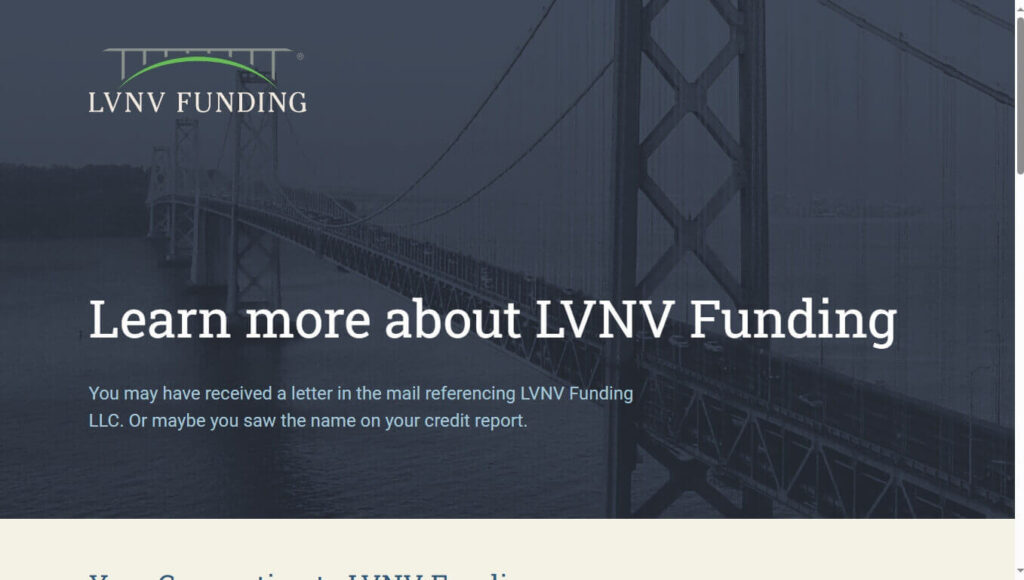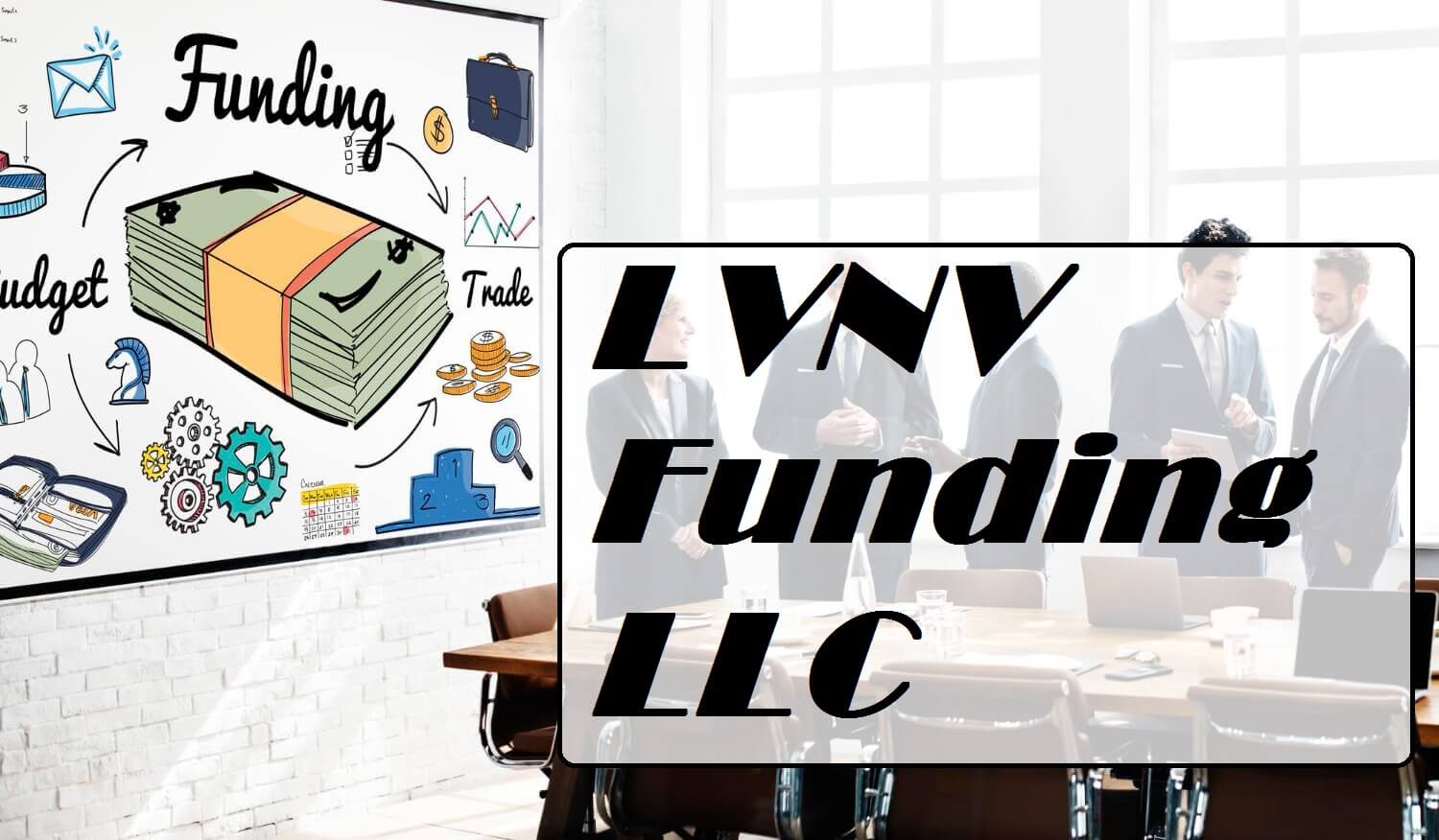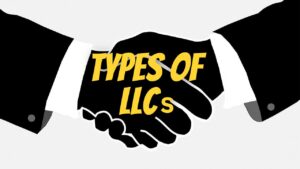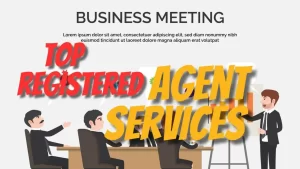
Here’s a comprehensive article on the secrets of LVNV Funding LLC and what you need to know:
Who Is LVNV Funding LLC and Why Are They Contacting Me?
LVNV Funding LLC is a debt buyer. Essentially, they purchase charged-off debts from original lenders. When you default on a credit card or personal loan, the original creditor may sell your debt to LVNV Funding. The company then hires a debt collection agency called Resurgent Capital Services to collect the debt on their behalf. So, if you’ve been receiving calls or letters from LVNV, it’s likely because they’re trying to collect on an overdue debt.
Do I Have To Pay LVNV Funding?
If LVNV Funding validates the debt, and you agree that you owe it (and the amount is correct), you probably have an obligation to pay at least a portion of the debt. Ignoring the situation can lead to escalated collection efforts, including lawsuits and wage or bank account garnishments. However, there’s good news: you can negotiate with LVNV to pay less than the original debt amount and settle the account for good.
How To Negotiate a Debt Settlement With LVNV Funding in 3 Steps
Make Sure the Debt Is Valid:
- Before negotiating, verify that the debt is indeed yours and that LVNV Funding has the right to collect it. If there are any discrepancies, dispute the debt.
Figure Out What You Can Pay:
- Assess your financial situation and determine how much you can realistically afford to pay. Be prepared to negotiate based on this amount.
Make a Settlement Offer to LVNV Funding:
- Reach out to LVNV Funding and propose a settlement. Offer to pay a lump sum (usually less than the original debt) in exchange for closing the account. Get any agreement in writing before making payment.
Can You Still Negotiate a Settlement if There’s a Debt Collection Lawsuit Against You?
Yes, even if LVNV Funding has filed a debt collection lawsuit against you, negotiation is still possible. Follow these steps:
Read the Summons and Complaint Carefully:
- Understand the details of the lawsuit. You’ll have a limited time to respond, so don’t delay.
Fill Out an Answer Form (and Any Other Required Forms):
- Respond to the lawsuit by submitting the necessary forms to the court.
File the Answer Form With the Court and Serve on the Plaintiff:
- File your response with the court and send a copy to LVNV Funding. This keeps the negotiation window open while you address the lawsuit.
Conclusion
LVNV Funding LLC operates as a debt buyer, purchasing charged-off debts and using Resurgent Capital Services for collections. While you may have an obligation to pay, negotiation is possible. Be informed, assert your rights, and explore settlement options to resolve your debt with LVNV Funding.
Remember, seeking legal advice is essential when dealing with debt collection matters. Consult an attorney to guide you through the process and protect your rights.
I hope you find this article helpful! If you have any other questions or need further assistance, feel free to ask. 😊
Let’s dive into the legal rights of consumers when dealing with LVNV Funding and explore additional debt negotiation strategies:
What are the legal rights of consumers when dealing with LVNV Funding?
Legal Rights When Dealing with LVNV Funding

Fair Credit Reporting Act (FCRA):
- Consumers have rights under the FCRA to dispute and negotiate with LVNV Funding.
- Regularly check your credit report to address any discrepancies or inaccuracies related to LVNV Funding accounts.
Fair Debt Collection Practices Act (FDCPA):
- If LVNV Funding contacts you, the FDCPA protects you from abusive, unfair, or deceptive behavior.
- If a debt collector crosses the line, you can submit a complaint to the Consumer Financial Protection Bureau (CFPB) or even sue the debt collector.
Debt Validation:
- Request validation of the debt from LVNV Funding. They must provide evidence that the debt is valid and legally owed by you.
- If they fail to validate the debt, you can dispute it and potentially have it removed from your credit report.
Provide more examples of debt negotiation strategies?

Debt Negotiation Strategies
- When negotiating with creditors, consider the following strategies:
Ask for Reduced Interest Rates:
- Request a lower interest rate on your outstanding debt. Lower interest means you’ll pay less over time.
Create a Repayment Plan:
- Work with your lender to establish a realistic repayment plan. This can help you manage payments effectively.
Debt Consolidation:
- Explore debt consolidation options. Combining multiple debts into one can simplify payments and potentially reduce interest rates.
Open Communication Channels:
- Maintain open and honest communication with your creditor. Explain your financial situation and propose solutions.
Payment Deferment:
- Ask the creditor for a temporary payment deferment if you’re facing financial hardship.
Debt Settlement Negotiations:
- Negotiate directly with the creditor to settle the debt for less than the full amount owed.
- Be prepared to offer a lump-sum payment or a structured settlement plan.
Remember that debt negotiation may impact your credit score, and any settled debt will remain on your credit report for several years. Weigh the pros and cons carefully and consider seeking professional advice if needed.
I hope you find this information helpful! If you have any more questions or need further assistance, feel free to ask. 😊
What are the consequences of debt settlement on credit scores?
Consequences of Debt Settlement on Credit Scores
Debt settlement can significantly impact your credit score, and it’s essential to understand the potential consequences:
Negative Impact:
- Debt settlement typically results in a negative impact on your credit score.
- The exact drop varies based on factors such as your current credit history, types of debt, and the size of the settlements.
- In some cases, credit scores can decrease by 100 points or more.
Credit Utilization Ratio:
- When you settle a debt, the lender often closes the account due to a modification in the original contract.
- This closure reduces your available credit, affecting your credit utilization ratio.
- Lower credit utilization is better for your credit score, but the involuntary account closure still negatively impacts it.
Credit Mix:
- Settling a debt may also affect your credit mix, which considers different types of credit (e.g., credit cards, loans, mortgages).
- An involuntarily closed account can be seen as a negative mark on your credit report.
Trade-Off:
- While debt settlement may lower your credit score temporarily, it can provide relief from overwhelming debt.
- Consider the trade-off: reduced debt burden versus a potential drop in your credit score.
Provide tips for avoiding LVNV Funding lawsuits?
Tips for Avoiding LVNV Funding Lawsuits
LVNV Funding LLC is a debt collection agency, and if they contact you, here’s how to handle the situation:
Validate the Debt:
- First, ensure that the debt is valid. Request validation from LVNV Funding.
- If they validate the debt, negotiate a settlement based on what you can afford.
Negotiate a Settlement:
- Even if LVNV Funding sues you, you can still negotiate a settlement.
- Respond to the lawsuit while working out negotiations.
- Draft a settlement offer to pay less than the original debt amount.
Read the Summons and Complaint Carefully:
- If LVNV Funding files a lawsuit, read the summons and complaint thoroughly.
- Understand the details of the lawsuit and your rights.
Fill Out an Answer Form:
- Respond to the lawsuit by filling out the necessary forms.
- Do not admit guilt or make agreements without legal guidance.
Consult an Attorney:
- Consider seeking professional advice from a consumer debt attorney.
- They can help you navigate the legal process and protect your rights.
Remember that paying off the debt is advisable to avoid lawsuits and eliminate the obligation. Once you’ve settled the debt, LVNV Funding will have no reason to contact you further.
I hope you find this information helpful! If you have any more questions or need further assistance, feel free to ask. 😊
What are the common mistakes people make during debt settlement negotiations?
Common Mistakes During Debt Settlement Negotiations
When negotiating debt settlements, individuals often make several common mistakes. Here are some pitfalls to avoid:
Failing to Assess Financial Situation Properly:
- Before entering debt settlement negotiations, accurately assess your financial situation.
- Understand your income, expenses, and debts to negotiate effectively and determine if debt settlement is the right option for you.
Ignoring Alternative Options:
- Debt settlement is just one option. Explore alternatives like debt consolidation, management plans, or bankruptcy.
- Each option has pros and cons, so consider what works best for your specific circumstances.
Not Researching Debt Settlement Companies:
- If you choose to work with a debt settlement company, research thoroughly.
- Ensure they are reputable and experienced to avoid unethical practices.
Stopping Payments Without a Plan:
- While negotiating, you may stop making payments to creditors.
- Develop a strategy for managing debts during this time to avoid late fees and credit score damage.
Not Understanding Tax Implications:
- Forgiven debt through settlement is usually considered taxable income by the IRS.
- Consult a tax professional to understand your options and plan accordingly.
How to rebuild credit after settling a debt with LVNV Funding?
Rebuilding Credit After Settling a Debt with LVNV Funding
After settling a debt with LVNV Funding, here’s how you can rebuild your credit:
Allow Time for Reporting:
- Once you pay off the debt, LVNV will report it as “paid in full” to credit bureaus.
- It generally takes about 30 to 45 days for your credit score to reflect this change.
Monitor Your Credit Report:
- Regularly check your credit report to ensure accurate reporting.
- Look for any discrepancies related to the settled debt.
Maintain Good Financial Habits:
- Pay bills on time, keep credit card balances low, and avoid new debt.
- Consistent positive behavior helps improve your credit score over time.
Diversify Your Credit Mix:
- Having a mix of credit types (credit cards, loans, etc.) positively impacts your score.
- Consider responsibly using different credit accounts.
Consider a Secured Credit Card:
- A secured credit card allows you to build credit by making timely payments.
- Use it responsibly and pay the balance in full each month.
Remember that rebuilding credit takes patience and consistent effort. Paying off the debt is the first step, and responsible financial habits will gradually improve your credit score.
I hope you find this information helpful! If you have any more questions or need further assistance, feel free to ask. 😊
What are the benefits of debt consolidation?
Benefits of Debt Consolidation
Debt consolidation is a strategy that involves combining multiple debts into a single loan or credit card. Here are some advantages of debt consolidation:
Pay Down Debt Faster:
- Personal loans used for debt consolidation often have lower interest rates compared to credit cards.
- With reduced interest charges, you can pay off the amounts owed over a shorter period of time.
Simplify Your Finances:
- Instead of managing several monthly payments, consolidating debts into one new loan streamlines your lifestyle and finances.
- It’s easier to keep track of a single payment.
Save on Interest:
- On average, personal loans have lower interest rates than credit cards.
- By paying down debt faster, you’ll save considerable money on interest.
How to negotiate a payment plan with LVNV Funding?
Negotiating a Payment Plan with LVNV Funding
If LVNV Funding contacts you regarding a debt, consider the following steps:
Ensure the Debt Is Valid:
- Validate the debt. If it’s legitimate and you agree that you owe it, proceed to the next steps.
Assess What You Can Pay:
- Evaluate your financial situation and determine how much you can realistically afford to pay.
- Be prepared to negotiate based on this amount.
Make a Settlement Offer:
- Reach out to LVNV Funding and propose a settlement.
- Offer to pay a lump sum (usually less than the original debt) in exchange for closing the account.
- Get any agreement in writing before making payment.
Even If Sued, Negotiation Is Possible:
- If LVNV Funding files a debt collection lawsuit against you, you can still negotiate.
- Respond to the lawsuit while working out negotiations.
Remember to stay informed about your rights and explore options that work best for your financial situation. Negotiating with LVNV Funding can lead to a more manageable outcome.
I hope you find this information helpful! If you have any more questions or need further assistance, feel free to ask. 😊
What are the eligibility criteria for debt consolidation loans?
Eligibility Criteria for Debt Consolidation Loans
When considering a debt consolidation loan, lenders typically look for the following eligibility criteria:
Proof of Income:
- You’ll need to provide evidence of a steady income to demonstrate your ability to repay the loan.
- Lenders want assurance that you can manage the new consolidated debt.
Good Credit Score:
- A good credit score is essential. It reflects your creditworthiness and history of managing debts.
- Lenders use credit scores to assess risk and determine interest rates.
Collateral (for Secured Loans):
- Some lenders may require collateral, especially for larger loan amounts.
- Collateral can be assets like a car or a house, which act as security for the loan.
Remember that each lender may have specific criteria, so it’s essential to check with them directly.
How to improve your financial literacy to handle debts better?
Improving Financial Literacy for Better Debt Management
Financial literacy plays a crucial role in handling debts effectively. Here are some steps to enhance your financial knowledge:
Learn to Budget:
- Budgeting is fundamental. Create a roadmap for your money, allocating funds to various expenses.
- Prioritize debt repayments within your budget to avoid surprises.
Understand Compound Interest:
- Compound interest affects both investments and debts.
- Learn how it works to manage your loans effectively. It can make a significant difference in your payback amounts over time.
Know Your Credit Score:
- Your credit score influences your borrowing power.
- Understand how it’s calculated and maintain or improve it to handle debt better.
Explore Debt Consolidation Options:
- Since you’re interested in debt consolidation, research different options.
- Understand how consolidation loans work and their benefits.
Invest Wisely:
- Once you’ve controlled your debt and built an emergency fund, consider investing.
- Learn about investment vehicles and strategies to grow your wealth.
Save for Retirement:
- Financial literacy includes planning for the long term.
- Start saving for retirement early to secure your financial future.
Remember that financial literacy empowers you to make informed decisions, manage debt, and achieve your financial goals. Continuously educate yourself to navigate the complexities of personal finance effectively.
I hope you find this information helpful! If you have any more questions or need further assistance, feel free to ask. 😊
What are the pros and cons of secured vs. unsecured debt consolidation loans?
Secured vs. Unsecured Debt Consolidation Loans
Secured Debt Consolidation Loan:
Definition: A secured debt consolidation loan requires collateral for approval. You provide an asset (such as your home or car) as security.
Pros:
- Lower Interest Rates: Secured loans typically have lower interest rates because they pose less risk for lenders.
- Easier Approval: Collateral reduces the lender’s risk, making approval more accessible.
- Larger Loan Amounts: You may qualify for a larger loan.
Cons:
- Risk to Assets: If you fail to make payments, you risk losing the collateral (e.g., your home).
- Asset Tied Up: The collateral is tied up until the loan is repaid.
Unsecured Debt Consolidation Loan:
Definition: An unsecured debt consolidation loan does not require collateral. Approval is based on your creditworthiness and financial profile.
Pros:
- No Collateral Risk: Your assets are not at risk if you fall behind on payments.
- Flexible Terms: Approval depends on your credit, income, and financial stability.
Cons:
- Higher Borrowing Costs: Unsecured loans are riskier for lenders, so they often come with higher interest rates.
- Smaller Loan Amounts: The loan amount may be limited compared to secured loans.
Choose based on your financial situation and risk tolerance. Secured loans are better if you have collateral and want lower rates, while unsecured loans suit those without collateral but may come with higher costs.
How to create a practical budget to manage your finances better?
Creating a Practical Budget: 5 Steps
Establish Your Savings Goals:
- Determine your life goals that require money (e.g., down payment, retirement, side hustle investment).
- Set realistic savings targets for each goal.
Track Your Expenses:
- Analyze your current monthly spending to understand your needs and identify areas for improvement.
- Use tools or apps to monitor expenses.
Record Your Monthly Income:
- Calculate your total monthly income, including salary, bonuses, and other sources.
Assess Your Spending:
- Categorize expenses (e.g., housing, groceries, entertainment).
- Identify areas where you can cut back.
Create a Budget:
- Allocate funds to different categories (e.g., needs, wants, savings).
- Stick to your budget and adjust as needed.
Remember, budgeting empowers you to achieve financial goals, reduce stress, and make informed decisions. Start today! 😊
What are some effective strategies for reducing discretionary spending?
Reducing Discretionary Spending:
Discretionary spending refers to non-essential expenses—those things we want but don’t necessarily need. Here are some effective strategies to reduce discretionary spending:
Ask Questions Before Spending:
Pause and ask yourself:
- How much better will this purchase make my life?
- Is this item worth throwing my budget out of whack right now?
- Can this purchase be postponed until my finances improve?
Create your own list of questions to help you hold onto your money instead of spending it impulsively.
Delay Purchases:
- Set an interval (e.g., two weeks) before making any discretionary purchase.
- Most of the time, the initial urge fades, and you may realize you don’t need the item after all.
- Maintain a wish list for items you’re considering.
Keep a Running List:
- Every time you make a discretionary purchase, add it to a spending list.
- Regularly review the total amount spent to discourage additional purchases.
- Seeing the cumulative total can make you think twice about adding more to it.
Allocate a Discretionary Allowance:
- If completely cutting discretionary spending is challenging, create a small allowance within your budget.
- Use this allowance for non-essential purchases while still maintaining control.
Comparison Shop and Use Discounts:
- Compare prices across retailers to find the best deals.
- Take advantage of coupons, discounts, and sales to reduce spending.
Focus on DIY and Home-Based Alternatives:
- Explore ways to do things yourself or find cost-effective alternatives.
- For example, cook at home instead of dining out or find free or low-cost entertainment options.
How to build an emergency fund as part of your budget?
Building an Emergency Fund:
An emergency fund acts as a financial safety net. Here’s how to build one:
Calculate Your Monthly Expenses:
- Determine your average monthly household expenses.
- Aim to save at least three to six months’ worth of these expenses.
Start Small:
- Set aside a comfortable amount from your salary each month.
- Use direct deposit or automatic transfers to contribute consistently to your emergency fund.
Use Unexpected Income:
- Whenever you receive unexpected income (like a tax refund or bonus), allocate a portion to your emergency fund.
Automate Savings:
- Set up a separate savings account (e.g., a Tax-Free Savings Account or High-Interest Savings Account).
- Disconnect it from your debit card to avoid spending it impulsively.
- Pay yourself first by automating regular contributions.
Remember, building an emergency fund takes time and discipline, but it provides peace of mind during unexpected situations. Start today, even if it’s with small contributions! 😊































i1deix
I was just looking for this information for a while. After six hours of continuous Googleing, at last I got it in your web site. I wonder what is the lack of Google strategy that don’t rank this type of informative sites in top of the list. Generally the top sites are full of garbage.